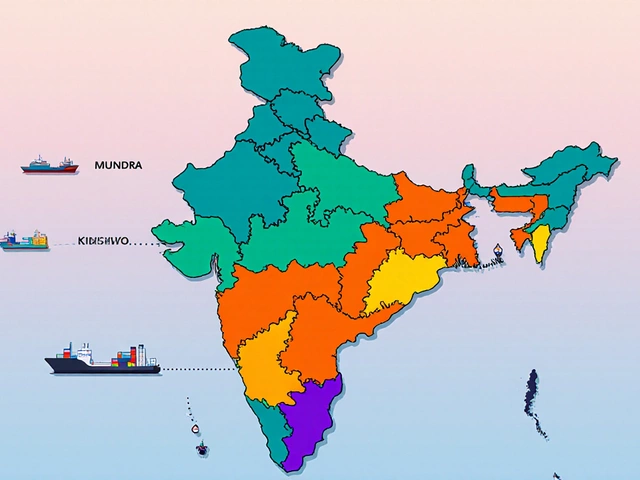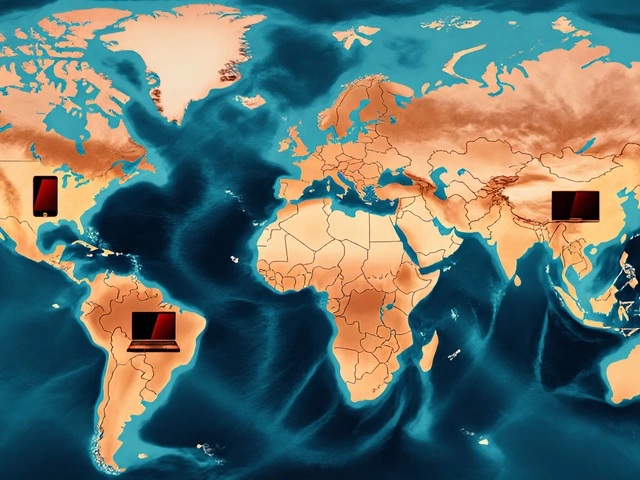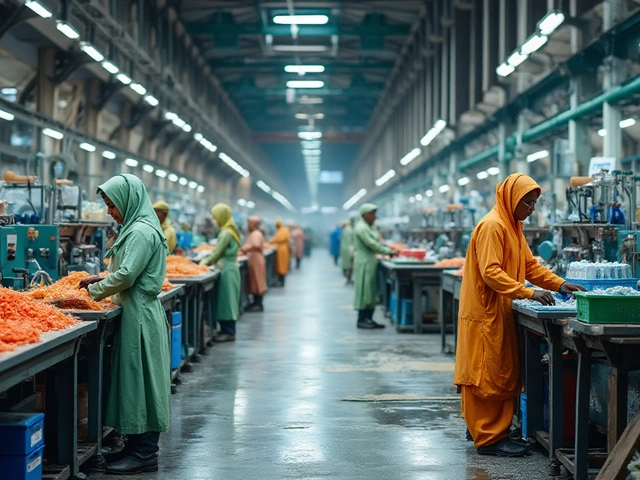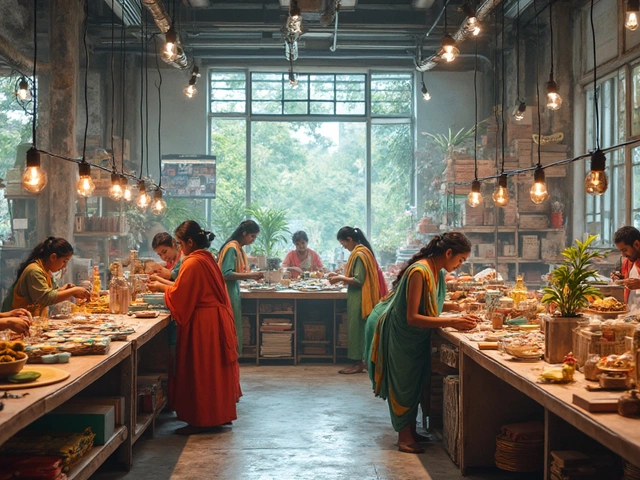Industries for Startups
When talking about industries for startups, the sectors that give new businesses a fast growth path and manageable entry costs. Also known as startup‑friendly industries, it often manufacturing industry, a field centered on making physical goods for local or global markets, the textile industry, the network that designs, produces, and exports fabrics and apparel, and the pharmaceutical industry, the sector that develops and sells medicines, especially generics as key examples.
Startups pick these sectors because they combine high demand with clear pathways to scale. Industries for startups often need less upfront capital than tech‑heavy fields, and they benefit from existing supply chains that can be tapped quickly. Market data shows a steady double‑digit growth rate in Indian manufacturing and a surge in textile exports, which means fresh opportunities for new players. At the same time, pharma and electronics enjoy strong government support, making regulatory hurdles easier to navigate for agile newcomers.
Why Manufacturing Matters
The manufacturing industry, covers everything from metal stamping to plastic molding offers a playground for startups that can outsource production. Contract manufacturers let you focus on design and branding while they handle the heavy lifting. This model cuts fixed costs and speeds up time‑to‑market. For example, many Indian furniture startups partner with local factories that already meet quality standards, allowing them to launch collections within months instead of years. Key attributes here are flexibility, lower cash burn, and the ability to test multiple products without heavy capital outlay.
Local manufacturing also ties directly into reshoring trends. When a startup sources domestically, it shortens lead times and reduces logistics risk—two factors that matter a lot in volatile markets. Moreover, domestic production builds credibility with customers who value "Made in India" labels, especially in segments like sustainable home goods.
Textiles: Design Meets Export
The textile industry, is a fast‑moving arena where design, trends, and export potential intersect works well for creative entrepreneurs. Surat, for instance, hosts the highest concentration of textile units in the country, giving startups access to a skilled workforce and a network of dyeing, printing, and finishing services. Because textile products have relatively low per‑unit costs, a small design team can launch a full line with modest funding.
Beyond fashion, there’s growing demand for technical fabrics used in automotive, medical, and sports applications. Startups that blend design flair with functional performance often secure higher margins and long‑term contracts. Sustainability is another driver; eco‑friendly fibers and water‑saving processes are becoming purchasing criteria for global buyers, opening a niche for green textile ventures.
Pharma: Health Needs Drive Growth
The pharmaceutical industry, focuses on creating and distributing medicines, especially cost‑effective generics presents a high‑impact route for startups with scientific expertise. India leads the world in generic drug production, and regulatory incentives make it easier for new firms to obtain approvals for off‑patent medicines. Startups can partner with contract research organizations (CROs) for clinical trials, reducing the time and money needed for product validation.
Key attributes include stringent quality standards, steady demand from a large patient base, and the possibility of exporting to markets with less competition. A startup that carves a niche in niche therapeutic areas—like dermatology or pediatric formulations—can quickly become a trusted supplier, leveraging the country’s strong export infrastructure.
Electronics: The Digital Backbone
The electronics industry, covers the design, assembly, and distribution of electronic components and devices is another hotspot for startups. With states like Gujarat and Karnataka offering dedicated electronics parks, new firms can tap into a ready supply of components, skilled engineers, and government subsidies. Startups often focus on niche sub‑segments such as IoT devices, smart home gadgets, or low‑cost medical wearables.
Because electronic products have short life cycles, speed to market is crucial. Leveraging contract manufacturers that already have assembly lines for smartphones or PCBs can shave months off development. The sector’s rapid innovation rhythm also means that a fresh idea can capture market share before larger players react.
All these sectors share common traits that make them attractive for early‑stage ventures: clear value chains, existing ecosystem support, and growth‑friendly policies. Below you’ll find articles that dive deeper into each industry, explain how startups can overcome typical challenges, and showcase real‑world examples of success. Use this collection as a roadmap to decide which sector matches your skill set, budget, and market ambition.

Navigating the world of manufacturing startups can be tricky, but knowing which industries offer the best opportunities can make a huge difference. 2025 presents promising sectors such as 3D printing, sustainable packaging, and personalized manufacturing. Each industry has unique advantages and challenges, but with the right insights and strategies, new entrepreneurs can make informed decisions. From understanding market demands to leveraging technology, this guide helps startups connect to the most profitable paths in manufacturing. (Read More)







